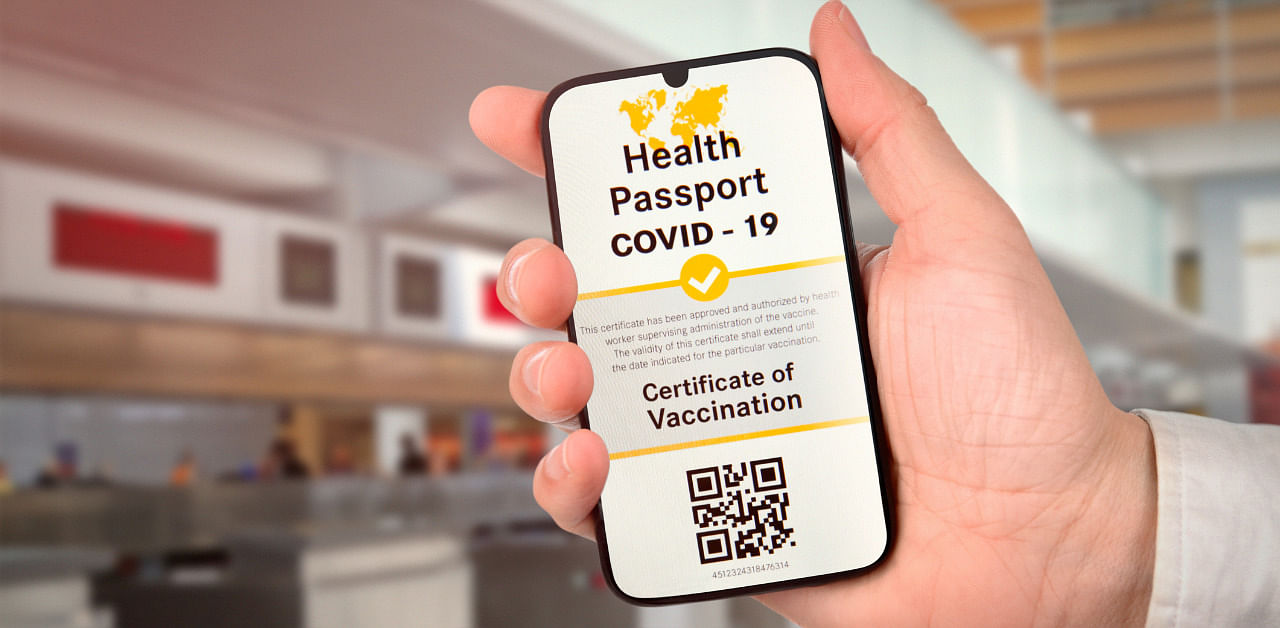
As Covid-19 vaccination rates increase around the world and the travel and leisure businesses yearn for a recovery, vaccine passports are starting to catch on as an option to enable people travel and help businesses recover.
A vaccine passport is a document or a digital system that carries information on your health and importantly, your vaccination status. Soon, they may be required to help you travel around the world, enter buildings, restaurants, theatres and more. The idea is that once you are vaccinated, you can carry a QR code on your phone and when that is scanned, you may be allowed to travel or enter a building.
Also Read | Opposition against UK vaccine passports grows
Several tech companies and open-source software groups, in an attempt to take on the growing need for a vaccine passport, have come up with solutions. Though the idea sounds simple in theory, there are concerns about multiple apps not having a standard approach to build a vaccine passport. These apps would need to receive your vaccination information, verify them in a simple, safe and regulated format.
For this to become a reality, various stakeholders such as countries, businesses, travel operators, tech companies and airlines will have to agree on one or a small set of accepted standards of implementing a vaccine passport system.
The International Air Transport Association (IATA) is working on its Travel Pass app, which will hold authenticated health certificates including proof of vaccination or test results.
British Airways, American Airlines and others are already trialling mobile health app VeriFLY on their flights. CommonPass, developed by the World Economic Forum and Commons Project Foundation, is another platform allowing people to document their Covid-19 status.
These are just a few examples, several other organisations are working on their own health pass systems.
Finalising a standard is both a technical headache and a bureaucratic nightmare.
The Biden administration and private companies are working to develop a standard approach to handling health information and verifying credentials, according to a report by The Washington Post. Earlier in April, the UK sought to use their presidency of the G-7, pushed the group to come up with an internationally recognised system of vaccine passports. PM Boris Johnson said that the idea raises 'deep and complex issues' and that they need to be explored before making a decision.
Security, another major factor when it comes to personal health information, is yet to be explored in such an implementation. Though the security of these apps are yet to be ascertained as they are still in a nascent phase, IBM has said that they will be using a blockchain that stores information at many different points than just one.
Another concern that arises from the lack of a unified system is that one may have to use multiple passes and apps to get into different places and travel to multiple locations.
An organisation working on a standard protocol is Vaccine Credential Initiative (VCI), which includes over 300 stakeholders, including Mayo Clinic, Microsoft, Epic, the Commons Project and others. The group is trying to get health organisations and electronic medical records companies to adopt a standard called smart health cards. However, with many other organisations and countries working on their own protocols, it remains to be seen what form vaccine passports will take in the future.